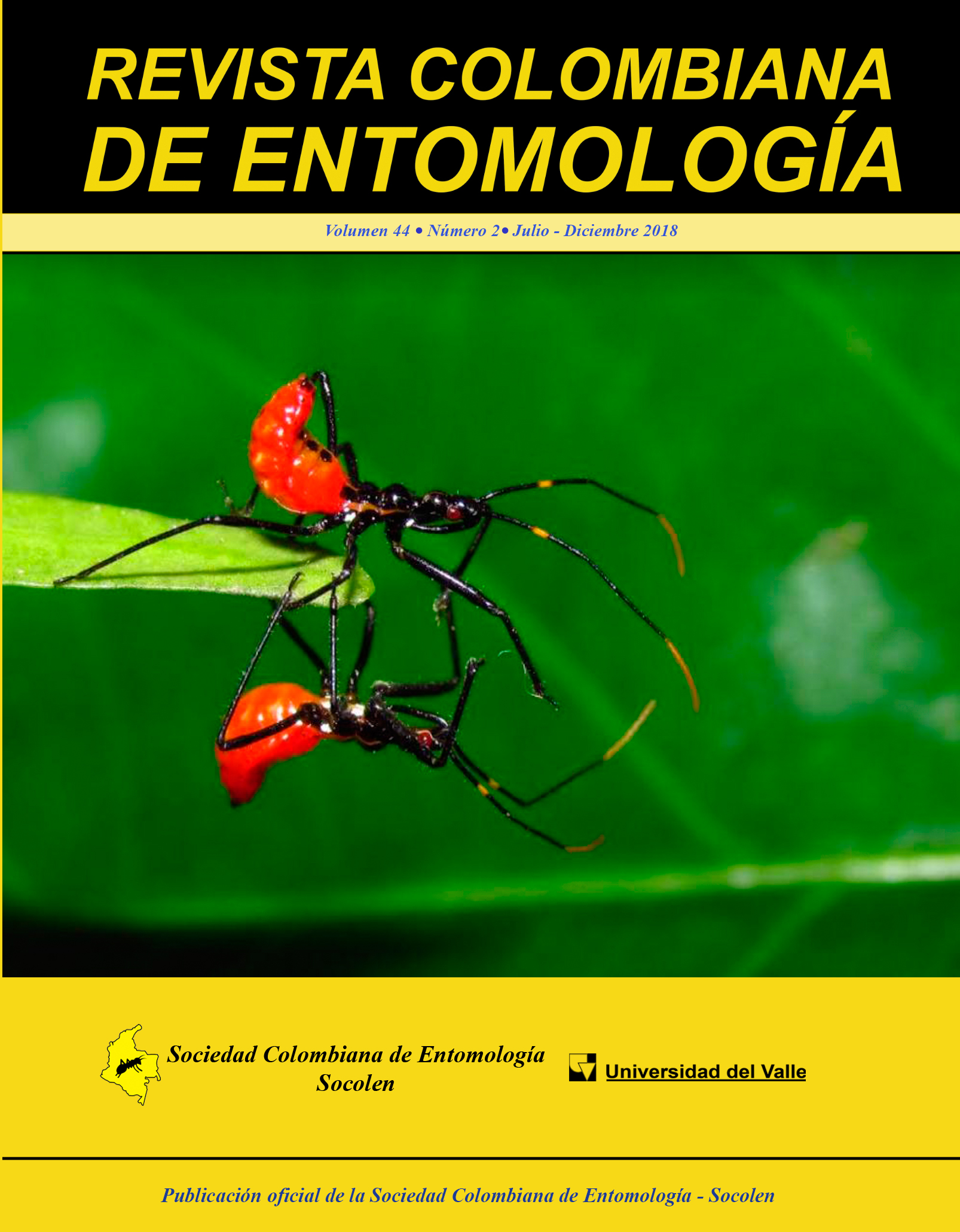Effect of different temperatures and cold storage on pupae of Apanteles gelechiidivoris (Hymenoptera: Braconidae)
Keywords:
Biological control, massive rearing, quality control, cold storageMain Article Content
Apanteles gelechiidivoris, a parasitoid of the third stage of Tuta absoluta larvae, can generate up to 80 % larval mortality in the field. In order to mass-produce this parasitoid, it is necessary to have cold storage of pupae in order to conserve significant quantities without losing biological characteristics. Different temperatures and cold storage times were evaluated using biological parameters in pupal and adult stages. The pupae were exposed to 4, 8 and 12 °C for 7, 14, 21 and 28 days of storage. At 4 and 8 °C, the emergence time was delayed after cold storage, being shorter by seven days at each temperature. Adult emergence was lower, at 4 °C, and decreased significantly as storage days increased. At 8 and 12 °C, emergence percentages of 90 and 100 percent were reported, respectively, after seven days of storage. Temperature and days of storage had no effect on the number of females produced (P > 0.05). Adult lifespan decreased with increasing days of cold storage. At 8 °C, the longest adult lifespan (9 days) was observed at 7 and 14 days of storage. At 4 °C, the parasitism of females that emerged from pupae on the storage days evaluated was affected; at 8 °C, the highest parasitism percentage (80 %) was obtained at 7 days of storage. The results suggest that pupae can be stored up to 14 days at 8 °C, without affecting the effectiveness of the parasitoid.
Downloads

This work is licensed under a Creative Commons Attribution-NonCommercial-ShareAlike 4.0 International License.
Authors retain the copyright on their work and are responsible for the ideas expressed in them. Once a manuscript is approved for publication, authors are asked for a publication license for the term of legal protection, for all territories that allows the use, dissemination and disclosure of the same.

